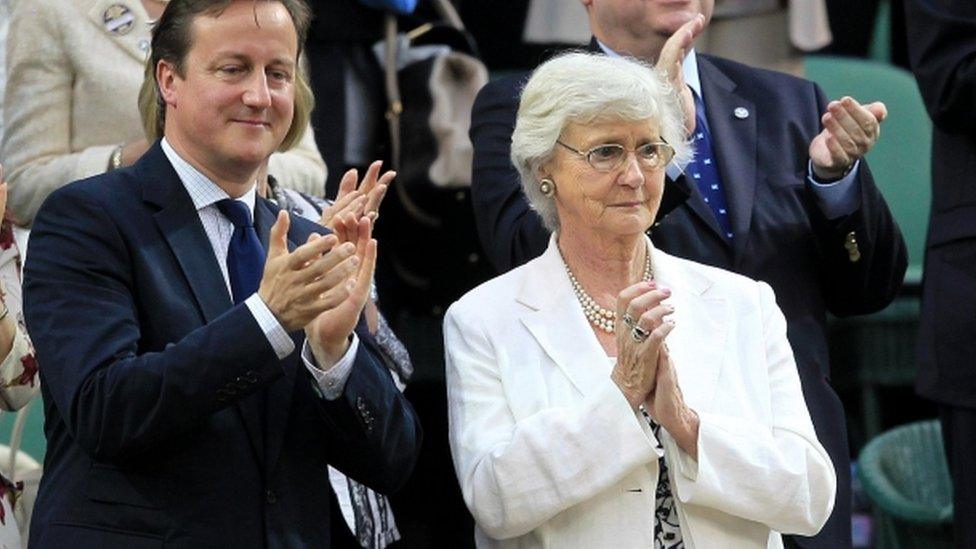Rishi Sunak paid over £1m in UK tax since 2019, records show
- Published
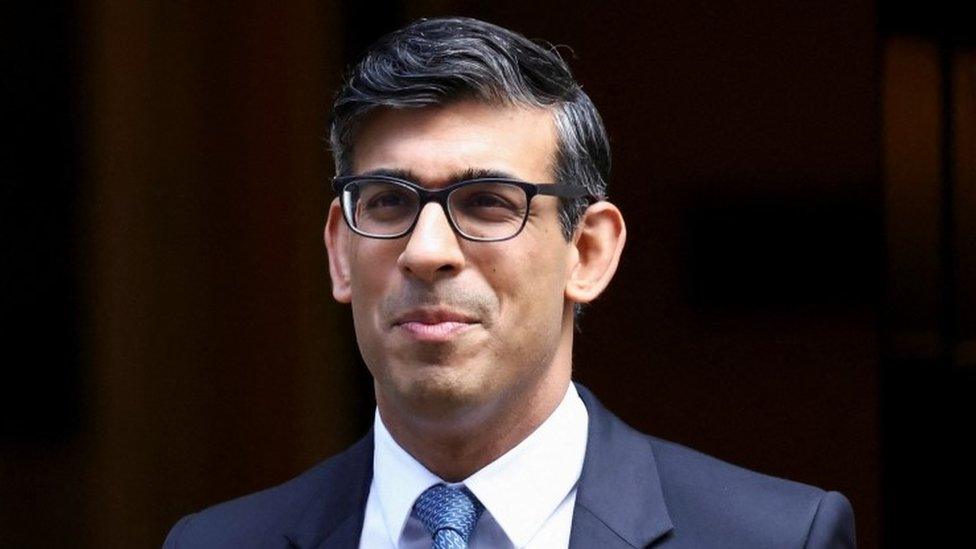
Prime Minister Rishi Sunak has faced calls to be more open about his financial affairs
Rishi Sunak paid more than £1m in UK tax over the last three years, details of the prime minister's financial affairs show.
The UK tax was paid on earnings of more than £4.7m from income and a US-based investment fund.
Mr Sunak first said he would publish a tax return during his unsuccessful campaign to be Tory leader last year.
He faced calls to be transparent about his finances after it emerged his wife, Akshata Murty, had non-dom status.
The tax details came as MPs questioned former Prime Minister Boris Johnson over whether he misled Parliament over Partygate.
Mr Sunak is thought to be one of the richest MPs in Parliament and his personal wealth is something opposition parties have often used as a political attack line.
The PM worked in finance before entering politics and he and his family are thought to own several properties, including a Grade II-listed manor house in his North Yorkshire constituency.
In the last financial year alone, 2021-2022, the prime minister earned more than £1.9m in income and capital gains, according to the records.
Capital gains are taxed at 20% in the UK, while the highest income tax band is 45% on earnings over £150,000.
The records, external show the total UK tax he paid was:
£227,350 on total earnings of £1,018,389 in 2019/20
£393,217 on total earnings of £1,777,581 in 2020/21
£432,493 on total earnings of £1,970,992 in 2021/22
Nimesh Shah, chief executive of tax advisory firm Blick Rothenberg, pointed out that Mr Sunak only released a summary of his income and gains, rather than a traditional tax return filed with HM Revenue & Customs.
"Whilst the public knows more now than it did before the release, it doesn't show the full picture," he said.
Mr Shah said the supporting notes from Mr Sunak's accountants "give an explanation of how his tax position is made, rather than it being left to interpretation of his tax returns".
"The release is a fairly controlled way of publishing his tax information."
Earlier this month, during a trip to Paris for talks with French President Emmanuel Macron, Mr Sunak said he had been too "busy" to publish sooner.
Labour said it was right Mr Sunak had published his tax returns "after much delay".
The party's deputy leader Angela Rayner said: "They reveal a tax system designed by successive Tory governments in which the prime minister pays a far lower tax rate than working people who face the highest tax burden in 70 years."
Labour leader Sir Keir Starmer has said he hoped to be able to publish his tax returns on Thursday.
The Liberal Democrats said Mr Sunak "snuck" the records out "whilst the world is distracted with Boris Johnson's Partygate grilling".
"People will be much more concerned today about the staggering tax hikes Rishi Sunak has imposed on them," the party's Cabinet Office spokesperson Christine Jardine said.
Mr Sunak said he was glad to publish his tax return "in the interests of transparency".
Asked on a visit to north Wales if, given his wealth, he could understand what it is like for people struggling to heat their homes, Mr Sunak said: "Ultimately what people are interested in is what I'm going to do for them."
Pointing to government support with energy bills, he said tackling the cost of living was his "number one priority".
While there is not a long tradition of prime ministers publishing their tax returns, some of Mr Sunak's predecessors have chosen to do so in recent years.
Former Conservative Prime Minister David Cameron published his tax return in 2016 after revelations about his late father's offshore fund were revealed in the Panama Papers.
Theresa May released her tax return during her campaign to be Tory leader in 2016, but did not do so when she was prime minister.
The two previous prime ministers, Boris Johnson and Liz Truss, did not publish their tax returns.
Under scrutiny
The financial affairs of Mr Sunak and his family were thrust into the media spotlight when he was chancellor in 2022.
Mr Sunak's wife, Ms Murty, revealed she had non-dom status, which meant she did not pay UK tax on her overseas earnings.
Ms Murty is the daughter the billionaire founder of Indian IT giant Infosys and owns a share of the company, entitling her to dividend payments.
As Mr Sunak came under political pressure, Ms Murty released a statement saying she would pay UK tax on her overseas income but retain her non-dom status.
At about the same time, Mr Sunak admitted he had held a US green card - allowing permanent residence in that country - while he was chancellor.
He returned the green card in October 2021, ahead of his first trip to the US as a UK government minister.
Following these revelations, Mr Sunak referred himself to the prime minister's ethics adviser, who cleared him of breaching ministerial rules over the declaration of his financial arrangements.
Blind trust
The document released by the government includes an explanation of the prime minister's tax affairs from 2019.
The document says all of Mr Sunak's investment income and capital gains "relate to a single US-based investment fund", which is listed as a "blind management arrangement" on the register of ministers' interests.
Politicians with share portfolios and investments routinely set up blind trusts when they get government jobs. This allows them to continue earning income from their investments without knowing where the money is invested to avoid any conflicts of interest.
The document says "some of the income of the US-based investment fund is also subject to tax in other jurisdictions (including the USA)".
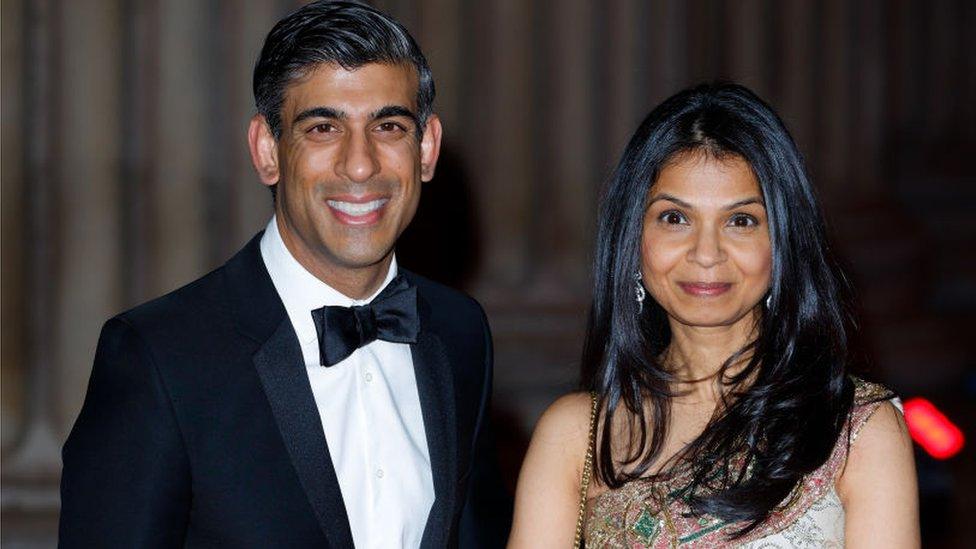
Mr Sunak is thought to be one of the richest MPs in Parliament
Mr Sunak - who has previously worked as an analyst for the investment bank, Goldman Sachs - has acknowledged that his investments are kept in a financial arrangement known as a blind trust.
In February, in an interview with TalkTV presenter Piers Morgan, he was asked whether it was right for prime ministers to have blind trusts.
Mr Sunak said: "I think that's better than them having control over them."
Mr Sunak's records also show that the prime minister paid tax in the US on dividends in the country. A dividend is a sum of money paid by a company to its shareholders out of its profits.
"These US dividends were also subject to tax in the UK," the document says.
The document says Mr Sunak's previously held green card status did not impact his tax liability in either the UK or the US during the three financial years reported.
Related topics
- Published3 February 2023
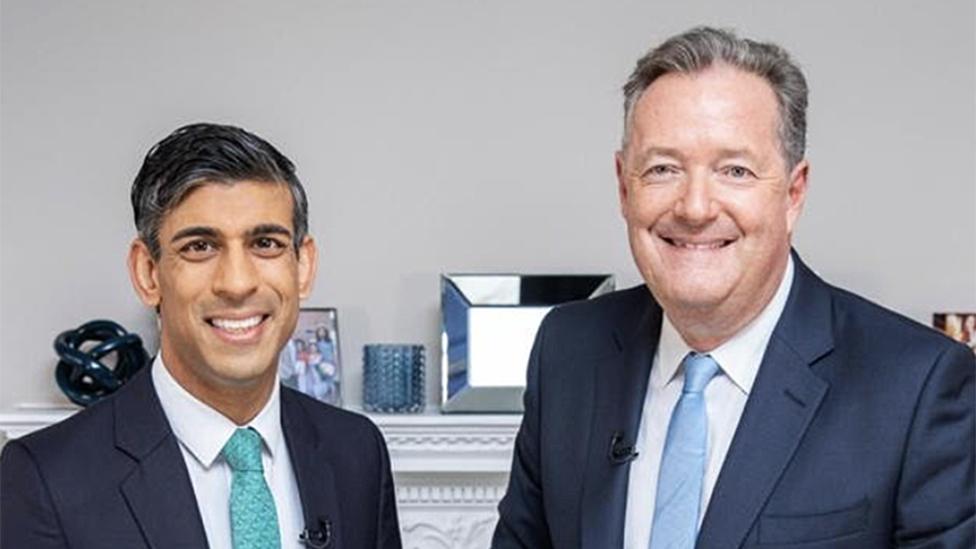
- Published11 April 2022
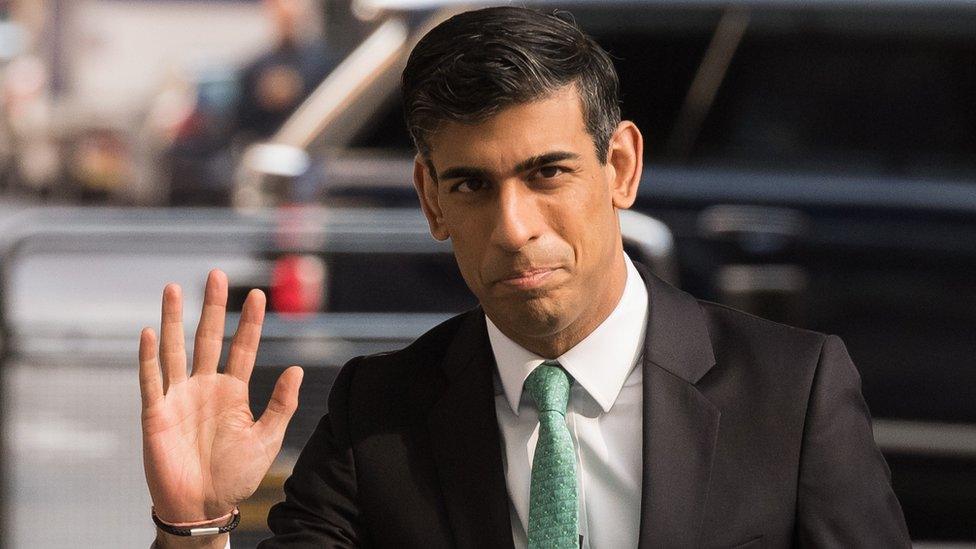
- Published10 April 2016
